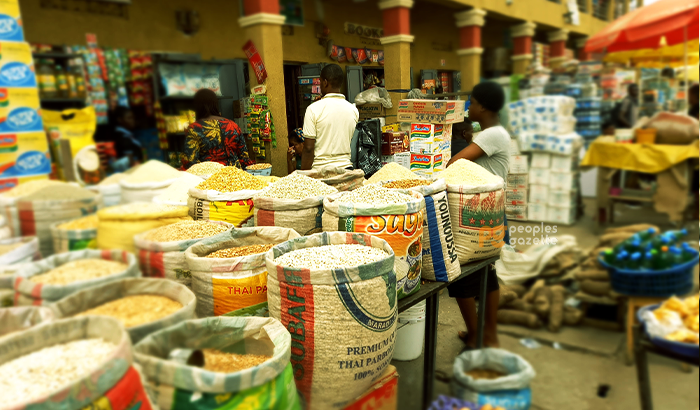The National Bureau of Statistics, NBS reported earlier in the week to the joy of Nigerians that inflation is heading for a fall. The immediate expectation would be that prices of commodities, including food items, will fall. While that has been experienced in most states, there are states that still have high cost of food stiffs.
The states are Sokoto, Gombe and Yobe, which led the country as the most expensive states to live in Nigeria.
The Consumer Price Index (CPI) recently released said the August 2024 headline inflation eased to 32.15 per cent, the second consecutive fall in fifteen months.
The report noted that the food inflation rate in August 2024 stood at 39.43 per cent a marginal decrease of 0.10 per cent compared to the 39.53 per cent rate recorded in July 2024.
Analysis of the data indicates that the inflationary pressure on states was not uniform in the period under review.
This means that the state with the most expensive cost of living in August 2024, was not the state with the highest increase in the prices of goods and services. The analysis show the top states with the highest surge in food inflation and its contrasting counterparts.
According to NBS, on a year-on-year basis, food inflation was highest in Sokoto at 46.98 per cent, Gombe at 43.25 per cent and Yobe at 43.21 per cent.
Food inflation eased in Benue State by 32.33 percent, Rivers State by 33.01 percent and Bayelsa State by 33.36 percent.
However, on a month-on-month basis, inflations saw the highest surge in August 2024 in Kwara state by 4.45 per cent, followed by Bauchi state at 4.22 per cent and then Adamawa state by 3.99 per cent.
The states with the least food inflation on a month-on-month basis include Ogun at 0.08 per cent, Akwa-Ibom at 0.45 per cent and Sokoto at 1.00 per cent.
However financial analysts have warned that the recent inflation decline may not continue in September due to rising fuel prices, although food inflation is expected to ease. The analysts also criticized the official inflation data, stating it does not reflect the severe economic hardships, particularly rising food costs and fuel scarcity, faced by Nigerians.
Head of Research at FSL Securities Limited, Mr Victor Chiazor, raised concerns that the recent decline in inflation recorded in July and August may not continue into September.
He pointed to the potential impact of an upward revision in Premium Motor Spirit (PMS) prices, which could exert additional inflationary pressure.
Chiazor, however, noted that a significant spike in inflation is not expected in September, adding that food inflation is projected to continue easing due to the ongoing harvest season.
This seasonal factor is anticipated to help moderate any acceleration in the Consumer Price Index (CPI) for September.
He said, “In September, we do not foresee a massive jump in inflation, as food inflation is likely to ease further on the back of the harvest season. This should help temper the overall inflationary pressure.”
Regarding market reactions, he highlighted that major players in the financial markets, as well as the Central Bank of Nigeria’s Monetary Policy Committee (MPC), are unlikely to make any drastic moves in response to the inflation data.
Instead, they are expected to wait for more substantial signs of inflationary deceleration before considering a shift away from the current tightening monetary stance.
The development, according to him, brings relief, “The moderation in headline inflation for two consecutive months offers some relief, especially given that both headline and month-on-month inflation have eased.”
Chiazor attributed the recent slowdown in inflation largely to a decline in food inflation, driven by the harvest season, along with the base effect.
That notwithstanding, he calls for caution. He wants the authorities to watch the rising core inflation, which, he said, excludes volatile items such as food and energy. Core inflation continued to edge higher, reaching 27.58 per cent in August, up from 27.47 per cent in July.
“While food inflation has provided some relief, core inflation remains a concern. The persistent rise in less volatile goods signals ongoing inflationary pressures that require close monitoring,” Chiazor warned.
As Nigeria heads into September, the analyst suggested that inflation could see mixed dynamics, with food inflation easing while core inflation may continue to trend upward due to structural factors and energy costs. This may delay any potential policy adjustments by the MPC.

